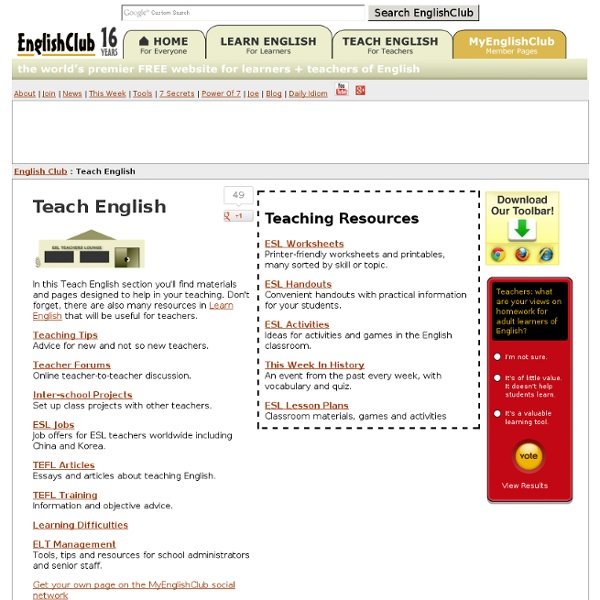



Teaching Ideas Teaching Ideas Johannes C. Razenberg TESOL teacher Introduction If your learners, regardless of their TOEIC proficiency level(s), are having trouble understanding the context, purpose, sociocultural usage, and so on of the texts which appear in Part VII of the TOEIC test, then you may be interested in utilizing this text-based syllabus. You may decide to include the units of work in your current TOEIC framework, adopt some of the ideas, or use this text-based syllabus as intended series of lessons which focuses on developing seven reading strategies across ten text-type categories. Aim To improve learners' TOEIC scores in Part VII of the TOEIC test Outcome Learners will have acquired seven reading strategies for improving their reading comprehension skills. Objectives Learners will: Use authentic texts to learn and practice the reading strategies. Units of Work Each unit of work follows the same genre-approach methodology and addresses each of the seven reading strategies. (Fig.1) Methodology
Well, Duh! April 2011 “Well, Duh!” -- Ten Obvious Truths That We Shouldn’t Be Ignoring By Alfie Kohn The field of education bubbles over with controversies. While many such statements are banal, some are worth noticing because in our school practices and policies we tend to ignore the implications that follow from them. Here are 10 examples. 1. The truth of this statement will be conceded (either willingly or reluctantly) by just about everyone who has spent time in school -- in other words, all of us. The more closely we inspect this model of teaching and testing, the more problematic it reveals itself to be. Even without these layers of deficiencies with the status quo, and even if we grant that remembering some things can be useful, the fundamental question echoes like a shout down an endless school corridor: Why are kids still being forced to memorize so much stuff that we know they won’t remember? 2. 3. There’s no shortage of evidence for this claim if you really need it. 4. 5. 6. 7. 8. 9. 10.
Internet TESL Journal (For ESL/EFL Teachers) Lanternfish Elements of the Gothic Novel Robert Harris Version Date: June 15, 2015 The gothic novel was invented almost single-handedly by Horace Walpole, whose The Castle of Otranto (1764) contains essentially all the elements that constitute the genre. Walpole's novel was imitated not only in the eighteenth century and not only in the novel form, but it has influenced the novel, the short story, poetry, and even film making up to the present day. Gothic elements include the following: 1. The castle may be near or connected to caves, which lend their own haunting flavor with their darkness, uneven floors, branchings, claustrophobia, and mystery. Translated into the modern novel or filmmaking, the setting might be in an old house or mansion--or even a new house--where unusual camera angles, sustained close ups during movement, and darkness or shadows create the same sense of claustrophobia and entrapment. 2. In modern novels and filmmaking, the inexplicable events are often murders. 3. 4. 5. 6. 7. 8. 9. 10. 1. 2. 3. 4. 5. 6.
78.01.08: Effective Methods For Teaching Paragraph Development The Writing Dilemma Consider the hours of English instruction devoted to subjects and predicates, fragments, run-ons, prepositional phrases, subordinate clauses, dangling participles, verbals, topic sentences, supporting details, closing sentences, and other grammatical jargon, all of which is taught with the noble intention of improving the composition skills of our students. For the most part, the result is the same: Weve spent three weeks on a writing unit and they still dont know what a topic sentence is! Similarly, consider the distraught teacher of social studies or science who, after reading a group of student essays or reports, points an accusing finger at the English teacher and asks: What are you teaching in your class? But most importantly, consider the anguished and frustrated student who, when seeing each of his written assignments splattered with red ink, reaches the tragic misconception that I cant write, so why bother? Establishing Goals Setting Up Your Program Notes 1. I.
Telescopic Text Skills Workshop The Curious Incident Of The Dog In The Night-Time | Teaching Ideas Fifteen-year-old Christopher has a photographic memory. He understands maths. He understands science. What he can't understand are other human beings. Book Author: Mark Haddon See More Books from this author English Read the first paragraph where Christopher discovers the dead dog. Maths Why is the numbering system for each chapter unusual? Geography Christopher likes to visualise and make plans of places. Christopher has Asperger's, a form of autism.